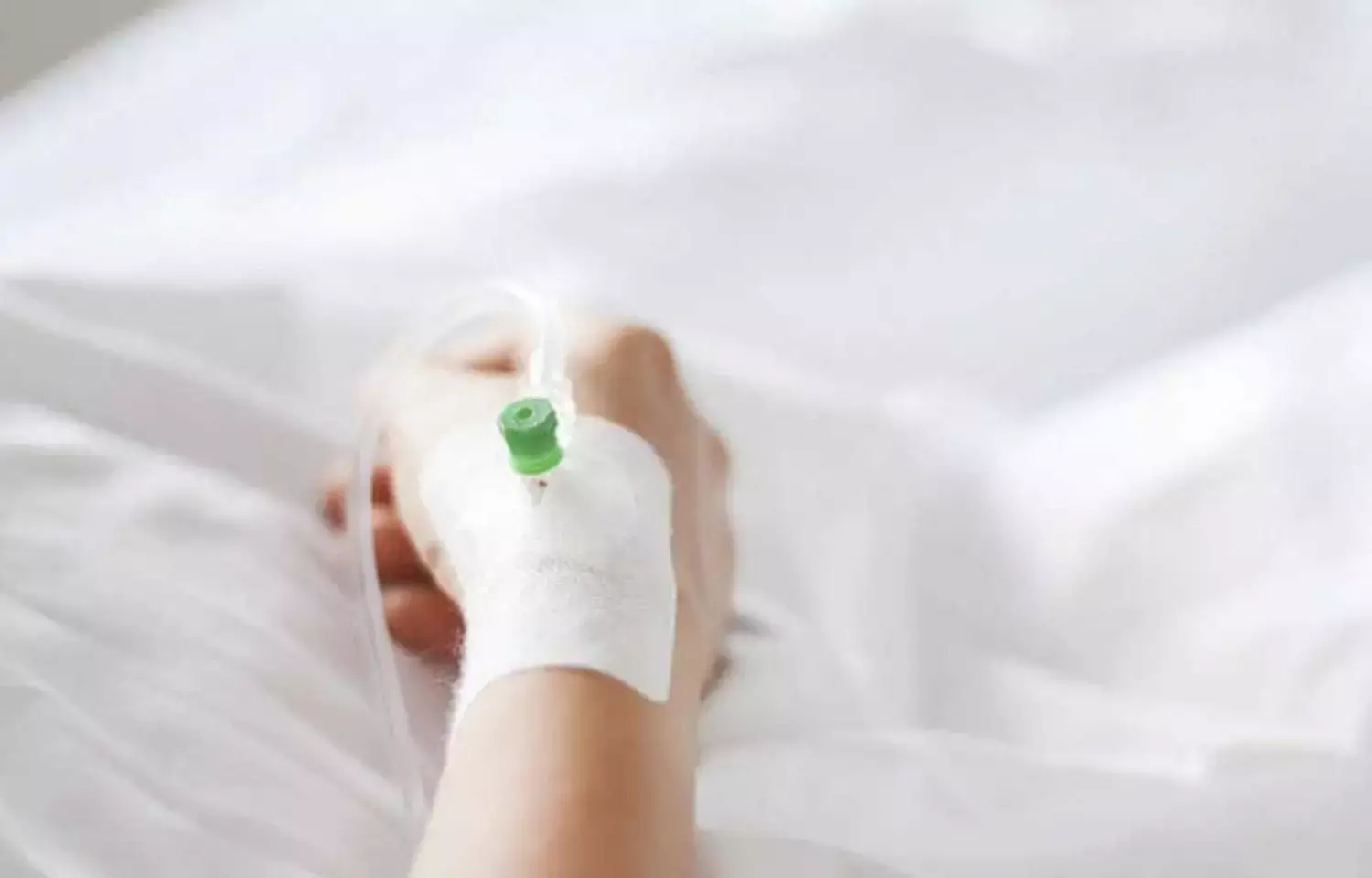- Home
- Medical news & Guidelines
- Anesthesiology
- Cardiology and CTVS
- Critical Care
- Dentistry
- Dermatology
- Diabetes and Endocrinology
- ENT
- Gastroenterology
- Medicine
- Nephrology
- Neurology
- Obstretics-Gynaecology
- Oncology
- Ophthalmology
- Orthopaedics
- Pediatrics-Neonatology
- Psychiatry
- Pulmonology
- Radiology
- Surgery
- Urology
- Laboratory Medicine
- Diet
- Nursing
- Paramedical
- Physiotherapy
- Health news
- Fact Check
- Bone Health Fact Check
- Brain Health Fact Check
- Cancer Related Fact Check
- Child Care Fact Check
- Dental and oral health fact check
- Diabetes and metabolic health fact check
- Diet and Nutrition Fact Check
- Eye and ENT Care Fact Check
- Fitness fact check
- Gut health fact check
- Heart health fact check
- Kidney health fact check
- Medical education fact check
- Men's health fact check
- Respiratory fact check
- Skin and hair care fact check
- Vaccine and Immunization fact check
- Women's health fact check
- AYUSH
- State News
- Andaman and Nicobar Islands
- Andhra Pradesh
- Arunachal Pradesh
- Assam
- Bihar
- Chandigarh
- Chattisgarh
- Dadra and Nagar Haveli
- Daman and Diu
- Delhi
- Goa
- Gujarat
- Haryana
- Himachal Pradesh
- Jammu & Kashmir
- Jharkhand
- Karnataka
- Kerala
- Ladakh
- Lakshadweep
- Madhya Pradesh
- Maharashtra
- Manipur
- Meghalaya
- Mizoram
- Nagaland
- Odisha
- Puducherry
- Punjab
- Rajasthan
- Sikkim
- Tamil Nadu
- Telangana
- Tripura
- Uttar Pradesh
- Uttrakhand
- West Bengal
- Medical Education
- Industry
In HF patients, intravenous iron reduces both CV death and HF-related events

A recent study published in the JACC: Heart Failure analyzed the guidelines that advocate the consideration of intravenous iron to reduce heart failure symptoms which showed positive impact on cardiovascular outcomes. This study was conducted by utilizing systematic review of randomized controlled trials from January 1, 2000, to August 26, 2023 and focused on patients with iron deficiency and heart failure.
This analysis encompassed 14 trials and 6,624 heart failure patients which revealed compelling results. Out of these, 3,407 were treated with intravenous iron while 3,217 received placebo. This comprehensive data unveiled a significant reduction in the risk of combined cardiovascular death and heart failure admission (OR: 0.838 [95% CI: 0.751-0.936]; P = 0.0015), cardiovascular death (OR: 0.867 [95% CI: 0.755-0.955]; P = 0.0427), first heart failure admission (OR: 0.855 [95% CI: 0.744-0.983]; P = 0.0281) and total heart failure admissions (rate ratio: 0.739 [95% CI: 0.661-0.827]; P < 0.0001).
This significance is further underscored by identifying the notable heterogeneity among trial results by concerning first and total heart failure admissions. Metaregression analysis highlighted variations in the baseline transferrin saturation (TSAT) levels which exhibited a more pronounced effect size on heart failure-related events by providing a crucial input into the nuanced relationship between iron status and treatment efficacy.
The observed reduction in cardiovascular death and heart failure-related events suggests a potential shift in the approach to heart failure treatment. Also, the study hints the relevance of baseline TSAT by indicating that patients with lower levels who might particularly benefit from this intervention. This study affirms its strong efficacy and also adds a layer by highlighting the influence of baseline TSAT by paving way for more personalized and effective interventions for heart failure management.
Source:
Martens, P., Augusto, S. N., Jr., Mullens, W., & Tang, W. H. W. (2023). Meta-Analysis and Metaregression of the Treatment Effect of Intravenous Iron in Iron-Deficient Heart Failure. In JACC: Heart Failure. Elsevier BV. https://doi.org/10.1016/j.jchf.2023.11.006
Neuroscience Masters graduate
Jacinthlyn Sylvia, a Neuroscience Master's graduate from Chennai has worked extensively in deciphering the neurobiology of cognition and motor control in aging. She also has spread-out exposure to Neurosurgery from her Bachelor’s. She is currently involved in active Neuro-Oncology research. She is an upcoming neuroscientist with a fiery passion for writing. Her news cover at Medical Dialogues feature recent discoveries and updates from the healthcare and biomedical research fields. She can be reached at editorial@medicaldialogues.in
Dr Kamal Kant Kohli-MBBS, DTCD- a chest specialist with more than 30 years of practice and a flair for writing clinical articles, Dr Kamal Kant Kohli joined Medical Dialogues as a Chief Editor of Medical News. Besides writing articles, as an editor, he proofreads and verifies all the medical content published on Medical Dialogues including those coming from journals, studies,medical conferences,guidelines etc. Email: drkohli@medicaldialogues.in. Contact no. 011-43720751


